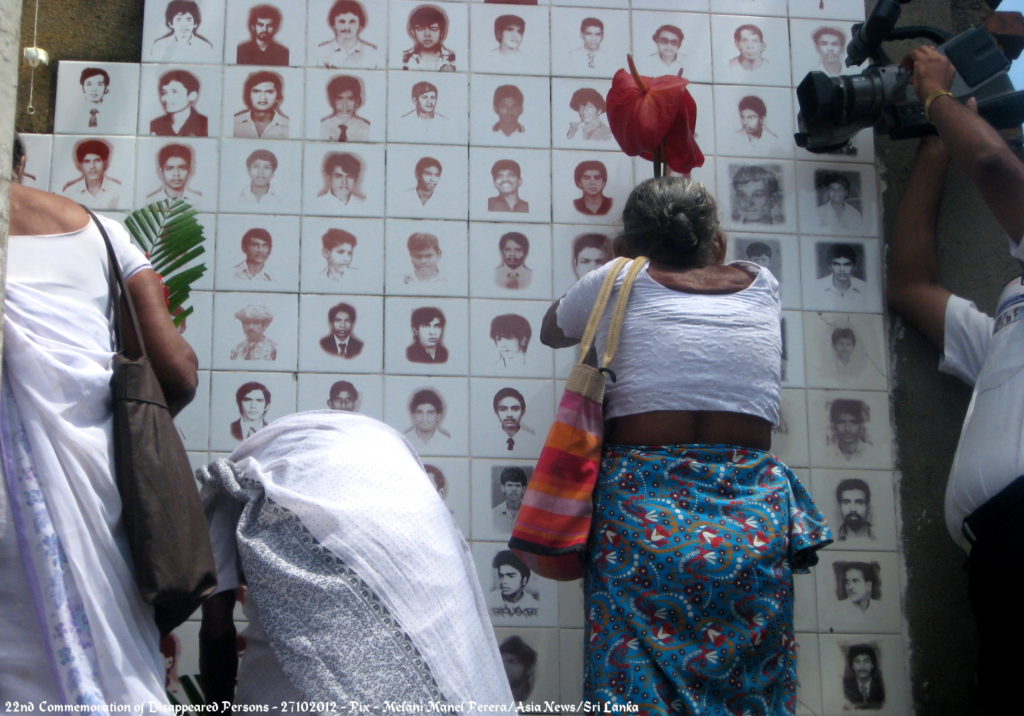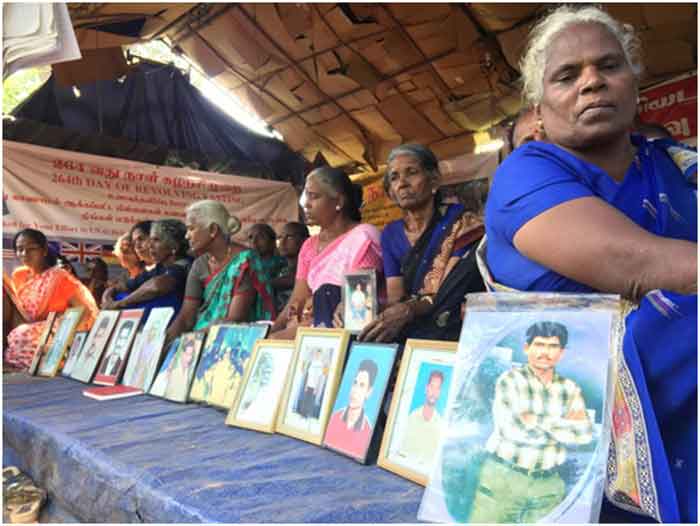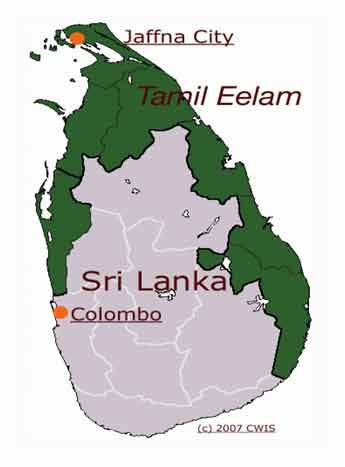
President Gotabaya’s pardon of a convicted criminal and let him loose and prowl free on the streets is only a licence and encouragement for him and other similar minded criminals to embark on a revengeful killing spree emboldened due to the guarantee of state protection and impunity.
The prosecution of Sunil Ratnayake managed to miraculously wade through the many pitfalls of the system of administration of justice in Sri Lanka including:
a) The political unwillingness of successive Governments of Sri Lanka to prosecute soldiers for crimes committed against the Tamil people;
b) The lack of independence of the Attorney General’s Department;
c) The lack of willingness to investigate crimes against Tamil civilians by the police. Many other cases failed because of the combination of these factors including the following:-
[1]Kumarapuram massacre,
[2] Visvamadu gang rape case
[3]Trinco Five massacre and many others where there was no prosecution.
Ratnayake’s pardon comes at a time when the world is overwhelmed by the COVID-19 pandemic. This is no coincidence. The Sri Lankan Government has disproportionately militarised its response to the crisis and it is no wonder they would engage in other actions to be seen to be protecting the military in parallel. The COVID-19 Task Force, which should be led by public health experts, is instead headed by the country’s Army Commander Shavendra Silva, a credibly accused war criminal who is named in UN reports and is banned from entry to the United States. Almost all other countries have entrusted leadership of their response to public health professionals, who as the situation escalates may deploy military as necessary, but not be lead by them.
The truth is that a Sinhalese soldier or official involved in the killings of innocent Tamils during war time or otherwise is glorified as a ‘War Hero” deserving a state welcome even if convicted and sentenced to jail or death. While appreciating the swift condemnation of the International Human Rights Organizations, they shoulder the responsibility to explore and initiate appropriate punitive measures against Sri Lanka which is continuing its defiance and disregard of accountability and justice emboldened by the lax approach by UN and UNHRC with little follow up and response.
It is all the more distressing to note the dead and ominous silence of the legal profession, Judges and civil rights groups in Sri Lanka. It could be due to fear of reprisals from militarized Government controlling civil administration especially in the North and East of Sri Lanka [Traditional and Historical homeland of Tamils]
It is well known that in Sri Lanka accountability and justice are practiced by upholding non-accountability and injustice aided with an entrenched culture of impunity since the pogroms against the Tamils in 1956, 1958, 1971, 1977, 1983 and genocidal war from 2006 to 2009 and Sri Lanka is rightfully now dubbed as an island of impunity.
The pardon, granted at a time when the country’s focus is on fighting COVID-19, is a serious setback to hopes that accountability could be brought about in Sri Lanka through domestic mechanisms. This act now very clearly justifies for the demand for an independent international investigation for the war crimes, crimes against humanity and genocide of Tamils in Sri Lanka.
PRESS RELEASE: ITJP’s Executive Director, Yasmin Sooka, Sri Lanka’s Militarisation of COVID-19 Response on 8 April 2020
Johanesburg: The lack of civilian oversight over Sri Lanka’s militarised COVID-19 response raises some very serious human rights concerns, said the International Truth and Justice Project. “Sri Lanka has an alleged war criminal heading its COVID-19 response, who served in the same army regiment as the President, raising questions about transparency, accountability and oversight,”
https://itjpsl.com/assets/press/English-ITJP_COVID-19-press-release-Merged-copy.pdf
[1] International Commission, of Jurists {ICJ] on March 2020 “The full pardon and extinguishment of severe punishment contribute a blow to the victims of these violations. President’s pardon may be the first of the many to come.”
[2] UN High Commissioner’s Office on March 27, 2020 “Pardon is an affront to victims” Another example of failure of Sri Lanka to fulfill its international obligations to provide meaningful accountability for war crimes, crimes against humanity etc. and gross human rights violations.”
[3] Amnesty International on March 26, 2020: “Where accountability is so rare for serious violations in Sri Lanka, the Government’s arbitrary decision to release Sergeant Ratnayake sends wrong message. It means that military perpetrators of horrific crimes even if convicted through a Court of law will be pardoned and released. It is despicable to have that justice reversed”.
[4] Human Rights Watch on March 26, 2020: This is disregard for justice by administration for worst abuses. Gotabaya’s regime approves any forms of justice for even the worst atrocities. Concerned Governments need to take the Sri Lankan Government’s message on board and respond appropriately. “
It is to be noted that the Law and Society Trust published an article in January 2014 [link below] regarding the judicial mind in Sri Lanka.
THE JUDICIAL MIND IN SRI LANKA;
Law and Society Trust – January 2014
Jayantha de Almeida Guneratne
Kishali Pinto-Jayawardena
Gehan Gunatillek
Dedicated to those Sri Lankan judges who had the fortitude to uphold their constitutional role during extraordinary challenges to the Rule of Law
Conclusion
“When multiethnic and multi-religious societies are confronted with challenges that test the limits of coexistence, governments may be tempted to resort to populism or political expediency. Sri Lanka’s relatively short post-independence history is unfortunately riddled with examples of such compromises. Minorities have been victimised throughout this country’s history. They have had nowhere to turn, except perhaps towards the only institution that is tasked with checking power: the judiciary. Sri Lanka’s judiciary has been called upon time and again to vindicate minority rights in the face of overwhelming oppression by the other organs of government. This study has essentially sought to examine the judiciary’s record in rising to and meeting this enormous challenge. At the heart of the post-independence mandate of the judiciary to protect the rights of all communities was Section 29 of the Soulbury Constitution. As detailed in the introduction of this study, the fundamental thinking behind the protection of minority rights flowed from this constitutional provision. However, the contents of this provision were consistently undermined throughout the survival of that Constitution, and in 1972, were omitted altogether from the new Republican Constitution. The gradual undermining of Section 29, culminating in its ultimate omission, in many ways reflected the slow deterioration of minority rights in Sri Lanka. The first Part of this study examined in detail the judiciary’s response to issues of language rights, employment rights, land rights and other basic liberties including the freedom of religion. In each case, the specific treatment of minorities was juxtaposed with the general jurisprudence on the issue. In each case, barring a few exceptions, the judiciary’s treatment of minorities was fundamentally different to the general dispensation on the issue. The unmistakably divergent treatment meted out to litigants from minority communities, in the very least, raises serious doubts over the objectivity and impartiality
Kumarathasan Rasingam – Secretary – The Tamil Canadian Elders for Human Rights Org.
SIGN UP FOR COUNTERCURRENTS DAILY NEWS LETTER
















































